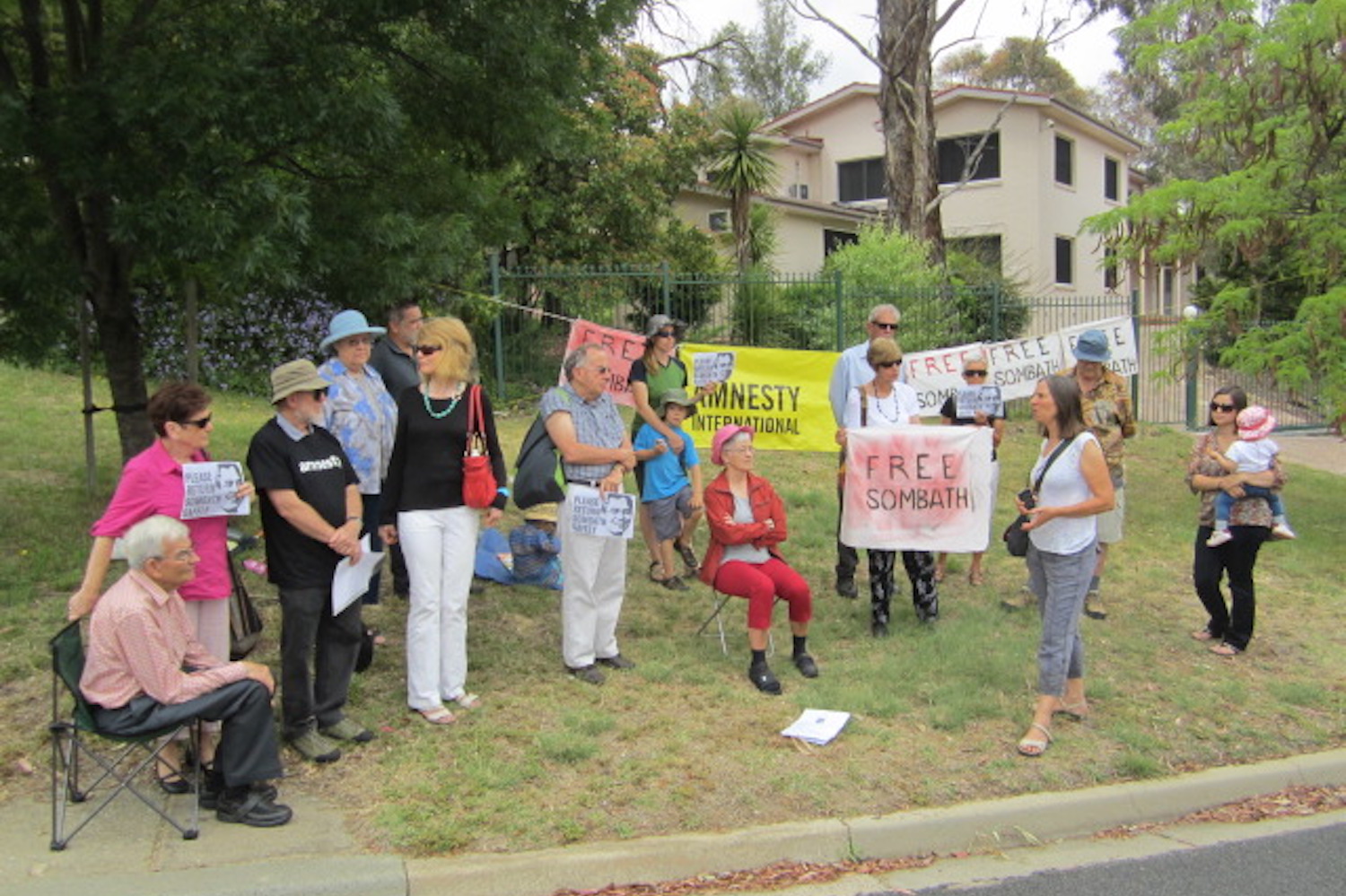Letter to Sombath Somphone
On the occasion of the 4th Cycle of the UPR on Laos in Geneva
28 September 2025
My dearest Sombath,
I am writing you today to tell you that during the 4th Cycle of the UPR on the Lao PDR which took place in Geneva from 25-26 September, your enforced disappearance on December 15, 2012 (twelve years ago) in front of the police post in Vientiane, is still an issue of concern to many countries, human rights organizations, and civil society groups.
Concerned member states, human rights organizations, and civil society groups continued to condemn the inaction of the Lao Government to investigate your disappearance. They continued to urge the Lao authorities to act with accountability and transparency to resolve your case and to reveal the facts about your abduction.
Rights Watch (HRW) in its statement at the UPR, for example, expressed concerns about the Lao PDR’s dismissal of several proposed measures to conduct credible investigations into your enforced disappearance, and that of other unresolved cases. HRW continued to urge the Lao government to conduct a full and impartial investigation of your enforced disappearance and to disclose your fate, pointing out that your disappearance is emblematic of Laos’ broader impunity for rights violations committed against its critics.
Similarly, the International Federation for Human Rights (FIDH), condemned the Lao authorities’ protracted inaction in the investigation into your disappearance and urged it to reveal your fate and whereabouts. It further stated that “the government’s refusal to accept a recommendation to investigate the enforced disappearance of civil society leader Sombath Somphone is particularly disturbing.”
These statements of concern and expression of condemnation by international agencies are heartening to read because they show that the injustice and violation of your rights and dignity have not been forgotten, even with the passing of time. Such continued actions also give me some comfort that all governments are still held accountable to a set of internationally agreed human rights standards and practices, and their compliance or lack thereof will still be publicly judged on international platforms.
To the many organizations, concerned governments, and the UN Treaty bodies, I can only express my sincere gratitude to you for your persistent efforts to seek justice and truth for the victims of human rights abuses and violations, and for their family members who are ordinary people like myself and many other voiceless individuals. We ordinary citizens generally have no or little power to seek redress against such violations, and are left mostly to suffer in silence and hopelessness.
On my part, my dearest Sombath, I will never forget or give up my struggle to find you, and to find justice and truth for you and for our family.
Love you always,
Shui Meng






 Panel discussion,
Panel discussion,